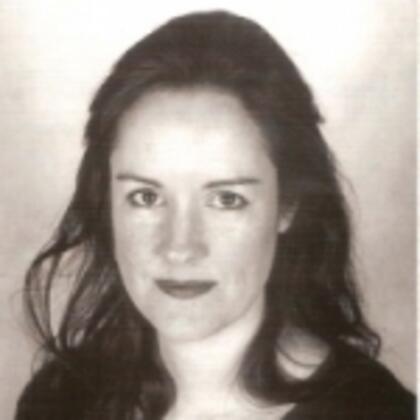'The Mountain has Many Paths'
Share
- Details
- Text
- Audio
- Downloads
- Extra Reading
Hawaiian religion has a saying: 'The mountain has many paths'. This is immediately appealing for those who would like to believe that all religious people worship the same God, or are in touch with the same Ultimate Reality; a sentiment commonly expressed by those interested in inter-faith dialogue. However, the Hawaiian saying does not say that all the paths lead to the same place
Download Text
The Mountain Has Many Paths
Professor Gwen Griffith-Dickson
There is a saying from traditional Hawaiian religion: ‘The mountain has many paths.’ Imagine yourself on a Hawaiian island, formed by a vast mountain of a volcano rising out of the sea. Tracing all over this mountain run numerous paths. You cannot follow all of them – you can only follow one of them. The others lead out of sight and for most of your climb, you do not know where they have gone. They may go to places that are alien and strange. Finally you reach the summit of the mountain, and see the glorious views. But you can also look back at the path you have taken, and see how, despite those tiring or even frightening moments, it has indeed taken you to the top. And what is more, you can also see the other paths, and realise that no matter how different the route they took, they too have led unerringly to the mountain peak.
When applied to the spiritual path, this image has a powerful appeal for many people. It suggests that there is not only one truth; not only one right path; not only one way to salvation. No matter how different the various religions or belief systems seem to be, they all lead to the same destination. This idea suggests a pleasing humility in the face of the mysteries of spiritual reality. It also suggests a gentler way of being together than the familiar histories of proselytising, conversion, even burning at the stake.
It also suggests, however, that the reason for this peaceful attitude is that despite appearances, all these paths really lead to the same single place. That’s why we can tolerate other people being different: because ultimately they’re not. I’m going to nickname this attitude – this assumption – the ‘mountaintop view’.
The intuitive appeal of the mountaintop view I believe lies behind the impact of a philosopher called John Hick, who put forward a very influential theory on religious pluralism. Originally from an evangelical Christian background, Hick became troubled by the implication that the religious beliefs of devout people of other faiths was somehow false or inferior. Drawing on the work of the philosopher Immanuel Kant, he made a distinction between ‘Ultimate Reality’ as it really is in itself’ and ‘Ultimate Reality as we perceive it’. The many different religions are simply how each perceives and embodies Ultimate Reality: ‘different human responses to the one divine Reality’.1 But the one divine Reality transcends all human descriptions of it. No one religious tradition has direct access to it, or a privileged account of it, but each represents an authentic way of conceiving it.
I resist the many attractions of the mountaintop view and Hick’s pluralism. The Hawaiian proverb says that there are many paths — but it does not say that they are all going to the same place. It is important to reflect why that may be so. Here is a short list of the reasons I am not happy with the ‘mountaintop view’.
We cannot know where all the paths end up unless we have arrived at the end of the spiritual journey — and if we have followed all of the paths. Until then, we simply cannot know where they all end. [So if Hick says we can know nothing of Ultimate Reality as it is in itself, but all religions represent it — how can heknow that?] It makes the religions themselves relatively unimportant, compared to its goal. But for a religious believer, it is not just heaven or nirvana that governs how you live your daily life, what you love, eat, how your dress. [For many a Christian, the personhood of Christ is not just your cultural clothing of Ultimate Reality. In which case, Hick has not recognised what really is your faith with the other faiths.] The way that different religious traditions describe their own end isnot the same. Moksha, nirvana, heaven, Paradise — the descriptions of these given by their believers is irreconcilable. In order to get around this difficulty, we have to find a theory which relativises these descriptions and asserts that really, some other theory is true. [Kant’s theory applied to Ultimate Reality is reallytrue; ‘nirvana’ is just a relative cultural embodiment of it.] It can make it impossible, or very difficult, to engage in ethical challenge and critique of religious views and practices. That is already difficult, but to my mind indispensable to a more peaceful world. We are apparently united in the Object of worship; but not amongst ourselves. This version of pluralism does nothing to uniteactual human beings. Because the place where all religions are united is in their destination, it only gives us the possibility of unity when we all meet the same Ultimate Reality, at the end of human history. I think that’s a little too late. To say that we might all be saved after we die does nothing to give us a way to unite now before we all kill each other.I can summarise my objections by saying that these versions of pluralism do not take religious difference seriously enough; but at the same time, they do not perceive the possibilities for interpersonal solidarity either. So it is time to rethink our stance on religious difference as well as solidarity. The thought that there are many paths all leading somewhere different – but wonderful – is a thought that people involved in inter-faith dialogue actually find very difficult to sustain. But I want to explore it. Tonight’s lecture can only be a foretaste of the approach that I want to advocate. It has implications for what truth is, what knowledge is, and how we conceive Ultimate Reality itself. Fortunately I have a few future opportunities to have a stab at those questions. For tonight I simply want to explore the question of diversity in a sequence of episodes.
I want to suggest some guidelines right from the start:
do not minimise difference for the sake of unity do not imagine unity where there is considerable diversity do not imagine division where there is considerable agreement Above all, do not assume that the most important differences liebetween religions, cultures or civilisations.One tendency in speaking about religious difference is to overstate the differences between religions; and consequently to understate the differences within religions. If we look at both the level of systematic religious ideas, and at the level of ordinary religious attitudes, we see more complicated patterns appear.
In my own study, I have been struck by the similarities that crop up in the philosophies and theologies of the different religions. What looks to be the same sort of argument about one of God’s attributes, or a ‘proof’ for the existence of God, will appear in Muslim, Jewish and Christian thinkers. And indeed, from a very different religious and philosophical perspective, we find similar arguments in the Nyaya logicians of India .
Of course such arguments have their opponents. And here something else interesting happens. Muslims, Christians and Jews all pop up arguingagainst these arguments for God’s existence — and putting forward the same objections. So what we have are Jews, Christians and Muslims who agree with each other – and disagree with their fellow Jews, Christians and Muslims – on particular points of faith in God.
This demonstrates an interesting pattern of agreement with people of other faiths, and disagreement with people of the same faith. This should be no surprise. Each major religious tradition is internally divided. These divides are not merely denominational – Catholic vs. Protestant, Sunni vs. Shi’a, Reform vs. Orthodox. Increasingly these divides are ideological, political, even psychological—call it what you will. We have liberals and conservatives, radicals and fundamentalists, authoritarians or free-thinkers in matters of Scriptures or sex; social issues or politics within each religion. Religious people often find it hardest to tolerate a member of their own religion who differs in these matters. People from another faith who share their politics or social opinions they can get on with rather better. Liberals tend to prefer liberals of any religion to the fundamentalists of their own.
So it is increasingly difficult to see each religion as a unified entity who engages in a dialogue (or war) with another such entity. The patterns of internal dissent and external harmony are much more complex than that.
Now this makes possible a different view of inter-faith relations and activity. If liberals or fundamentalists of different religions have much in common with each other, this creates the possibility of working together towards their common end. These goals may not be religious so much as social or political. Religious conservatives may unite to challenge laws governing sexuality, the family, or abortion. Peacemakers, environmental activists or protesters against economic injustice or human rights violations may join forces across the faiths to achieve their goals. Consequently, the ethical campaigns and battles of the future–even where they are not explicitly religious–might be a source of inter-faith unity.
If you ever thought that ‘religious pluralism’ or ‘inter-faith dialogue’ were merely theoretical issues, you surely cannot think that now, after the 11 th of September. In the wake of those tragic events, we have heard references from commentators to something called the ‘clash of civilisations’. In a much-discussed article of 1993, later expanded into a book, Samuel Huntington maintains that after the demise of Communist states and the end of the Cold War, the future divisions on the planet will occur between ‘civilisations’: ‘The great divisions among humankind and the dominating source of conflict will be cultural. …The clash of civilizations will dominate global politics. The fault lines between civilizations will be the battle lines of the future.’ He names the civilisations now in existence as ‘Western, Confucian, Japanese, Islamic, Hindu, Slavic-Orthodox, Latin American and possibly African’. Thus some of them he describes largely in terms of their religious culture, and in his discussion, he states that religion plays an extremely important role in these civilisations; Huntington ’s clash of civilisations then is in large part apparently the clash of religions. What he makes abundantly clear is the profound difference in values that exists between these different cultures. ‘The survival of the West depends on Americans reaffirming their Western identity and Westerners accepting their civilization as unique not universal and uniting to renew and preserve it against challenges from non-Western societies.’2
Perhaps it is tempting to claim that Huntington ’s thesis was prophetic and is being proven true even now. But is it? In the statements and speeches of the main political leaders in the United States and United Kingdom , did we hear sentences like: ‘This is a clash of civilisations’ – ‘This is an attack on our civilisation; carried out by a civilisation with different values’ ? Or were people queuing up to say: ‘This is an attack on the civilised world.’ ‘Make no mistake – this was an attack on civilisation itself’? It does not seem as if our political leaders wanted to encourage the idea of a clash of civilisations. In their discourse there is apparently only one civilisation,one civilised world. Its avowed enemy is not a different civilisation with different values, but barbarism—with no values. It seems it was strategically extremely important to deny the status of being a civilisation to those who attacked America .
Equally, it is strategically important to involve Muslim civilisations in the coalition. So even to attack Muslims, we need Muslim help. If this is a clash of civilisations, which side is Islamic civilisation supposed to be on? According to Huntington , these civilisations are divided by their values. But if we are to believe Messrs Bush and Blair, both Westerners and Muslims share the values which we are going to war to defend.
Now, about this ‘going to war to defend our values’…. We are bombing Afghanistan (although no Afghans appeared on that list of 22 ‘most wanted’ suspects); it is now suggested this will continue until at least next summer. We are killing civilians, and continue to do so despite pleas from international aid agencies and the claim that this will lead to the starvation of potentially millions of people. Is that one of your values? For myself, I always thought the hallmark of civilisation was this: we do not honour the dead by killing in their memory. And the most civilised thing I have ever read is this: ‘the friend who thirsts for our blood - may God befriend him.’ But that statement of breathtaking generosity was not said by Jesus, or a Westerner. It was written by a Muslim mystical poet from Iran , Jalaluddin Rumi. So now I am really confused. Judging by my values, which civilisation do I belong to?
The point that I am making is this: if as I have argued religions are not monolithic blocks, then neither are these so-called ‘civilisations’. What Huntington describes as a civilisation with its own set of unique values, I see instead as internally riven. Far from defining these civilisations, values are in dispute in every civilisation.
What we have seen in Western politicians’ responses to the attacks in America is a desperate but chaotic struggle to speak about these ‘Western’ values in relation to the rest of the world. In these sometimes clumsy attempts, we see a fundamental confusion: are these values, such as freedom and democracy, unique to the West, as Huntington insists; or are they actually universal? We’d better say they are universal, because we won’t be able to persuade Pakistan or Saudi Arabia to support these attacks on behalf of Western values. But many voices are raised disputing the values that lie behind these attacks. So maybe we had better go back to saying it is just the American Way or Western Way to defend these values. But what do we say if we say to the rest of the world, that the West uniquely values the sanctity of human life, Enduring Freedom; and as for ‘Justice’, finite or infinite …. — well, the less said, the better.
The impossibility of speaking about Western values in a coherent way stems not least from this binary opposition: they must either be ‘unique’, or they must be ‘universal’. Not only are these extremes, they are mutually contradictory. And yet, strangely, I think it is quite clear that the speakers believe both to be simultaneously true. Here is how this contradiction can be united in a single utterance: ‘We discovered these values, we continually defend them, and in that sense they are uniquely Western: unique in our ownership of them. But these values are right, and the rest of the world ought to believe in them, and in that sense they are universal: universal in their validity.’
Is there anything wrong with saying instead: ‘many of these values are shared. Some are not — even by people in our own culture’?
What I am advocating here is the importance of recognising diversity. What I have argued for religions, and for civilisations, is this: that the differences that give rise to conflict are found internally in such cultures as often as between them. Meanwhile, harmony exists between groups as well as within them.
But I also want to make clear that these differences are not to be wished away. They have positive value. This diversity introduces a richness of opportunities and potential. It provides us with a wealth of resources for ideas, strategies, principles that could prove useful, some day, in a different situation.
A few weeks ago, a colleague who is a Professor of Economics gave me something to read from a discipline which is not my own: ‘the Economics of Religion’. This is a brave new world full of concepts entirely new to me, even where I can work out what they’re talking about. How religious a family is, is calculated by how much time they invest per week towards what is called ‘afterlife consumption’. And I was utterly charmed to see how they describe it when one spouse converts to the other spouse’s religion: this economists of religion call an ‘efficiency gain’.
But there was one finding, supported by numerous studies in different countries, that was really striking: those cities or countries with the greatest religious diversity also have the greatest levels of religious belief and practice. In other words, the greater the number of religions around, the more religious people are generally. This may not be a surprise to American economists. They must already know that the greater the number of kinds of coffee you offer, the more coffee people buy overall. But this is more of a surprise to philosophers and theologians. It throws down a challenge to the atheist or sceptical philosopher who claims, like Antony Flew, that the existence of many religions with their apparently competing truth claims is itself strong evidence that none of them can be right.3 It also cuts through the objections of those religious hardliners who see the existence of other faiths as a threat to their own tradition. Even they are doing well out of the pluralist situation. Even the evangelical churches have greater levels of attendance (and financial giving) where the other faiths and denominations are also strong.
If you look at ‘cuisines’, it illustrates the value we often give to diversity. The existence of many different cuisines does not prove that none of them can be right. Nor does the presence of French, Italian, Indian, Thai cuisines in this country constitute a threat to British cuisine. On the contrary; whether your measure is the range of ingredients on offer in supermarkets, or the number of Michelin-starred restaurants, or even the number of celebrity chefs on television, British cooking seems to be flourishing like never before. We also see how, although people usually prefer their own culture’s food, they also enjoy sharing others’ and feel enriched by it. Perhaps we should adopt a ‘cuisine’ model of religious diversity.
Perhaps many of you were present at the special Gresham lecture a year ago at which Hans Küng spoke about the ‘Global Ethic’ project. The Global Ethic project’s aim is to articulate an ethic shared by all the world’s religions. The presupposition of this project is that: ‘An ethic already exists within the religious teachings of the world which can counter the global distress. … We confirm that there is already a consensus among the religions which can be the basis for a global ethic – a minimalfundamental consensus concerning binding values, irrevocable standards, and fundamental moral attitudes.’4 What is needed is not a detailed ethical code, the nuts and bolts of sin, ‘but a global consensus on the fundamental attitude toward good and evil and the basic and middle principles to put it into action.’ This must not be an imposed unitary ethic, but ‘must be arrived at by consensus through dialogue.’5 This ambitious project has actually been realised, with the publication of a ‘Declaration Toward a Global Ethic’, which was approved in 1993 at the Parliament of the World’s Religions.
There is nothing in this document that I would not personally hold as one of my own ethical principles. To disagree with it risks opposing ‘commitment to a culture of non-violence and respect for life’, ‘commitment to a culture of solidarity and a just economic order’, ‘commitment to a culture of tolerance and a life of truthfulness’ and ‘commitment to a culture of equal rights and partnership between men and women’ (its four basic principles). How can one disagree?
One of the things I found telling in hearing Küng speak about the process of drafting this inter-faith Declaration was his admission – and he did not seem to see it as an ‘admission’ – that whenever they disagreed on something, they simply left that issue out. Now that is an interesting take on inclusion and a ‘culture of tolerance’: omit any mention of dissent. So I embarrass myself by already dissenting from the rest of moral and religious civilisation, because I think those points on which representatives of religious communities disagree (for example, the place of women in society, despite what it says in Principle 4) are the ones that are the most crucial for us to debate publicly.
I also find it interesting that on one of their websites, you have the ‘Universal Declaration of a Global Ethic’, which is a draft by an American Christian; then as a supplement are offered a Muslim response, an African response, and so on. Of course there is also a ‘Christian response’, which came from John Hick. But he found it difficult to give one, saying:
The difficulty in offering a distinctively Christian comment on Leonard Swidler’s draft is that it is already in an important sense a Christian document. Western Christianity has been increasingly suffused with the individualistic, democratic, liberal, historically-minded, science-oriented outlook of the Enlightenment, an outlook that constitutes what can comprehensively be called the ethos of ‘modernity.’ ...Anyone reading it can readily identify its provenance, reflecting as it does the concerns and presuppositions of modernity.6
In other words, the draft’s origins are clear: not the globe, but Western liberal Christianity. Now, it isn’t the case that a Muslim would therefore disagree on the sacredness of human life or an African would disagree on the importance of telling the truth. But what would happen if someone else had drafted the document?
In his response to the Global Ethic, a project which he supports, Mutombo Nkulu compared the draft of the Global Ethic to the African Charter on Human and Peoples’ Rights. (Even in the title of this document an interesting contribution to the debate is made.)7 What I find interesting in the African Charter is not some radical difference of perspective; nor a neglect of those ‘fundamental freedoms’ or ‘personal rights’ which the West tends to emphasise. Rather, what strikes me is what Western conceptions and drafts leave out, compared to the African document. The absence of certain points in the Western documents suddenly seems like an indictment of the narrowness – not the pre-eminence – of the ‘Western’, or perhaps we should say ‘Northern’, perspective. For example, principle ‘do not murder’ does not simply address the killing of an individual, but the right of ‘peoples’ to continue to exist as an ethnic and cultural group, and to resist domination.8 ‘Thou shalt not steal’ is extended to the level of a people, a nation, indeed a continent as one we should not steal from. A people has a right to development; and individuals have a right to asylum. The list of rights also ends with a list of duties; and where the Global ethic speaks of the rights of children, the African Charter also states as a duty the obligation to respect and look after one’s parents.9
Of course the Global Ethic can be, and I believe has been, rewritten contain such insights, once other faiths and cultures have made their contributions. But if these insights are taken out of an African document, stripped of their cultural origin and their distinctive voice, and embedded in the global document, the African contribution is made invisible. Isn’t there something of great importance that is thereby lost?
I’ll tell you one thing that is lost by subsuming these comments and having us all put our name on it: and that is the continual reminder to the American and European writers that they didn’t think of this.
A single global ethic is actually a comparatively impoverished document. Much more richness and potential would come from a portfolio of declarations, contributed by different religious, regional, cultural or even gender groups. Where there was disagreement, differing views could have been published for us all to learn from. We could still have the single ‘global’ statement as a preface, which collates those points on which there is genuine agreement. But we would also have the eternal challenge of intelligent divergence. Divided we stand, united we fall.
At the end of this lecture, I want to make three positive suggestions.
A single account of Religious Pluralism will not be adequate.I do not intend to set up an account of religious pluralism to rival Hick. There can be no ‘global’ theory of religious difference which will be convincing and persuasive for all traditions and perspectives.
Every account of religious pluralism is not an entity subsisting in itself. It exists in relation to something else. That something else is a religion; or better, a specific audience. An account of religious pluralism then is an important act of rhetoric: designed to persuade a particular audience to see things in a particular way. So philosophies of religious pluralism are tradition-specific. What commends itself to a Hindu as a way of harmonising the diverse religions of the world will not be persuasive to the majority of Muslims. We need theologies of inter-faith relations that arise from, and speak to, their own traditions.10
But although no single theory will satisfy all religions, we can do something more than create a theology of inter-faith relations for onlyone faith at a time. We can construct one in accordance with a set of values shared by several different faiths where similarities lie. So I could construct one designed to appeal to ‘the people of the Book’, that is, Muslims, Jews and Christians. It would begin something like this:
There is a highly suggestive verse in the 5 th sura of the Qur’an. It says that God sent the Torah, which contains guidance and light, along with the prophets, rabbis and priests to give instructions to the Jews. Then God sent Jesus and the Gospel. Then God sent the Qur’an, confirming and preserving the earlier revelations. ‘To each of you We have given a law and a way and a pattern of life. If God had pleased He could surely have made you one people. But He wished to try and test you by that which He gave you. So try to excel in good deeds. To Him will you all return in the end’ (Q. 5:48 )
This has great potential as the inspiration for a theology of religious difference—for monotheists. It does not anathematise the other religions. Instead, it seems to portray the existence of different religions aspositively willed by God. And it even suggests a purpose God had in doing so: to set us a challenge, indeed an ethical challenge, in learning to cope with this divided revelation. On this view we are tried and tested by the existence of different religions — specifically, tested by God. As Tennyson wrote: ‘And God fulfils Himself in many ways, Lest one good custom should corrupt the world.’11
I think this is a line of thought that will work for many people. I know it will not persuade everyone. A single theory of religious pluralism will not be adequate for every world-view.
2. Secondly, I want to suggest that we adopt a different agenda for inter-faith work.
Philosophically, the principle problem of religious diversity has often been portrayed as one of truth-claims: who is right. Theologically it has focused on salvation: who in which religion will or won’t be saved? Instead, I suggest we shift our concentration to ethical questions. Why shouldn’t the most important problem be: how do we cope with difference and handle diversity?
One consequence of an emphasis on what is believed, as the problem of difference we have to solve, is that we tend to be ‘in dialogue’ with those whose faith is most like our own. But one result is the marginalisation of indigenous peoples in interfaith dialogue. Christians find it easier to agree on the nature of God with Jews than with native Hawaiian religion, which says that a god can take the body-form of a sweet potato. Now that is a difficult theology for a Catholic like me to swallow! Imagine the primitive mindset of a religion that believes you can eat the body of your God!
But we don’t need to agree on the nature, or even number, of God(s) – or even that there is a God – in order to unite in opposing destruction of the environment. And we don’t need ultimately to agree on the place of women in society in order to oppose the killing of civilians. Maybe the most urgent inter-faith issues are not the questions of belief that arise between religions. Maybe they are the international issues of life and death, which religious people of different faiths can actually unite to address.
3. We need a way of thinking of diversity positively, as valued in itself; rather than tolerating difference only so long as it can be reduced to a single point of unity.
Let’s view difference in religion, world-view and culture as positively as we see variety in cuisines. Their co-existence enriches us all. The more diverse the range of cuisines on offer, the more potential for adding richness to one’s own life, even if — in every sense of the phrase — some of them ‘don’t agree with you’. They begin to influence one another positively, even when they challenge one another. If we obliterate differences or even smooth over difficulties, we rob ourselves of variety, of so many possibilities, ideas, of potential — in short, we squander our resources for future thinking, believing, and action. We also risk creating a new totalitarianism, even if it is one of supposedly tolerant values.
Imagine yourself on a Hawaiian island, formed by a vast mountain of a volcano rising out of the sea. Tracing all over this mountains run numerous paths. You follow a path that leads to the top of the volcano. Another track diverges from your path, goes up the backside of the mountain, and comes up to the summit to meet you from the other side. Now those on the mountain peak are highest, exalted, almost touching the sky. They have breathtaking perspective over the whole island; they enjoy a beatific vision. And the air is thin at that altitude and you can start to feel giddy very quickly.
Another group of friends did not aspire to such heights such as you were capable of reaching. They went to the beach. Anyone who arrives there can merge with the huge, infinite, ever-coursing sea; and become totally at one with, lose oneself in this source of life. They can dive down to the profound depths that someone on the mountain peak can never reach. Plus they can go surfing.
Other paths lead through grassy uplands; they lead to waterfalls with icy water that makes the bather’s skin tingle deliciously; they ramble through rainforests packed with colourful birds and fragrant flowers which cannot survive the salt air nor the windswept summit.
Which of these paths is the right one?
There is a saying from traditional Hawaiian religion: ‘The mountain has many paths.’ And as you climb the summit and see the journey taken by the others, you realise that — they are all going to different places.
© Gwen Griffith-Dickson
Endnotes
1 Hick, John, God Has Many Names (London: Macmillan, 1980), 2. See also the exposition in John Hick, An Interpretation of Religion (New Haven, Conn.: Yale University Press, 1989). Although he seems to suggest that one cannot say that Jew, Christian and Muslim all believe in the same God, cp. Disputed Questions in Theology and the Philosophy of Religion,(New Haven: Yale University Press, 1993), 153. There are predictable objections from those who believe that not all religions do reveal God or Ultimate Reality; or that Christianity must maintain its proclamation of uniqueness or is, in some more inclusive way, that Christ is the only medium of salvation (cp. the works of Alister McGrath, George Lindbeck, L. Newbigin for different Christian approaches). John Milbank argues that the Church can and should do no other than proclaim its own message [‘The end of dialogue’ in G. D’Costa, Christian Uniqueness Reconsidered (New York, 1990), pp. 174-91. Others have maintained that Hick’s attempt to remove the absolute, if you like ‘exclusive’ content of belief means that there is nothing left of religion. [Cf. G. D’Costa, Theology and Religious Pluralism (Oxford and New York, 1986), and John Hick’s Theology of Religions ((Lanham, MD and London , 1987).] People have also objected that he does not deal adequately with the problem of conflicting truth-claims made by religions, although he makes a detailed attempt inInterpretation. One can also criticise the philosophical framework with which he operates.
2 Samuel Huntington, The Clash of Civilizations (New York: Simon and Schuster, 1996) in Chapter 1, summarising the argument of Part V.
3 Antony Flew, God and Philosophy (London: Hutchenson, 1966), 124-139.
4 See: K ò ng, Hans and Karl-Josef Kuschel, eds., A Global Ethic. The Declaration of the Parliament of the World’s Religions (London: SCM Press, also New York: Continuum [and other European publishers] 1993.) See also the website devoted to this project, which contains the text of the declaration: http://astro.temple.edu/~dialogue/geth.htm. There is also another version, drafted by Leonard Swidler. This quotation is from the introduction to the ‘Principles’, on the website version
5 Leonard Swidler’s draft, ‘Toward a Universal Declaration of a Global Ethic’
http://astro.temple.edu/~dialogue/Center/intro.htm
6 http://astro.temple.edu/~dialogue/Center/hick.htm
7 This document, published by the Organisation of African Unity (OAU) in June 1981, is in part a response to the UN Declaration of Human Rights, its application to the African situation(s), but also a working out of the issues from the starting point of African thinking.
8 Article 20: 1. All peoples shall have right to existence. They shall have the unquestionable and inalienable
right to self-determination. They shall freely determine their political status and shall pursue
their economic and social development according to the policy they have freely chosen.
2. Colonized or oppressed peoples shall have the right to free themselves from the bonds of
domination by resorting to any means recognised by the international community.
3. All peoples shall have the rights to the assistance of the States Parties to the present Charter
in their liberation struggle against foreign domination, be it political, economic or cultural.
9 ‘To preserve the harmonious development of the family and to work for the cohesion and respect of the family; to respect his parents at all times, to maintain them in case of need.’
10 Taking Christianity as an example, we have already a number of Christian theological accounts which attempt to articulate an inter-faith approach in a way that fulfils the fundamental values, language and culture of Christianity. I would point you to the work of Michael Barnes, Jacques Dupuis, Gavin D’Costa for different examples of this important enterprise.
11 In ‘The Passing of King Arthur’.
This event was on Fri, 18 Oct 2002
Support Gresham
Gresham College has offered an outstanding education to the public free of charge for over 400 years. Today, Gresham College plays an important role in fostering a love of learning and a greater understanding of ourselves and the world around us. Your donation will help to widen our reach and to broaden our audience, allowing more people to benefit from a high-quality education from some of the brightest minds.


 Login
Login






